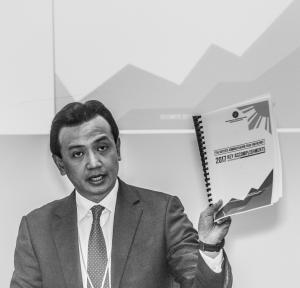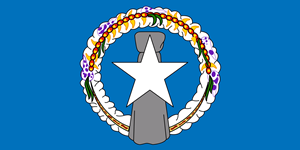The governor and the legislature are just about ready to roll.
Next year, the Mile High City could get even higher.
The GOP-led Health Department radically inflated cost estimates, and the GOP-led legislature went along with it.
StoptheDrugWar.org condemns the Duterte administration's illegal move to imprison a second prominent drug war critic, and the court system's strained logic going along with it.
The House Judiciary Committee approved a medical marijuana research bill, but with an obnoxious provision; a hundred Michigan dispensaries get a reprieve, Louisiana docs get the right to recommend medical marijuana to as many patients as they wish, and more.
It's been pretty quiet on the medical marijuana front this week, but the DEA has okayed the importation of Canadian marijuana for research purposes, and more.
Medical professionals are on board with marijuana legalization, and Diane Feinstein is getting there, too; the latest national drug use survey is out, US Customs talks tough about Canadians and marijuana, and more.
Tough talk about barring Canadians with links to legal marijuana leads one congressman to act, "fake pot" kills five and leaves dozens sick in DC, Oklahoma's medical marijuana fight continues, and more.
South Africa just became the first country on the continent to legalize marijuana possession, New Jersey wants to be the next state to legalize marijuana, the Senate passes a limited opioid bill, and more.
President Trump is headed to the UN to rally global drug warriors, New Jersey's long-awaited marijuana legalization bill is just about ready, Philadelphia settles a massive asset forfeiture lawsuit, and more.
A provision in the House opioid bill that would let the attorney general set sentences for synthetic drug offenses generates opposition, Colombia's coca production was at record levels last year, the DEA has okayed the import of Canadian marijuana for research purposes, and more.
The Northern Marianas Islands becomes the first US territory to legalize marijuana, a New Mexico poll has strong support for marijuana legalization, and more.
Voters in Michigan and North Dakota will have a chance to legalize marijuana on Election Day, but lawmakers in New Jersey could beat them to the punch. After much back-and-forth all year long, legislators have finally crafted a bill to legalize marijuana.
The bill, building on an earlier proposal by state Sen. Nicholas Scutari (D-Linden), is now being reviewed by the office of Gov. Phil Murphy (D), who campaigned on a platform that included marijuana legalization. Only minor changes are expected to come from the governor's office, and then the legislature should be ready to move.Murphy had talked about legalizing weed in his first hundred days in office. That didn't happen. Legislative leaders then talked about doing it before the end of this month. That's unlikely to happen, given the need for hearings and the fact that the bill hasn't officially been filed yet. But now legislators are talking about getting it done by the end of next month.
While the bill hasn't yet been filed, New Jersey Advance Media has obtained a draft. Here's what the measure will include:
· The legalization of the possession and personal use of small amounts of marijuana for people 21 and over, but not home cultivation.
· The creation of a system of taxed and regulated marijuana commerce.
· The creation of a Cannabis Regulatory Commission to craft rules and regulations based on the foundations in the bill. The five-member body appointed by the governor would also provide oversight for the industry.
· No ceiling on the number of potential licenses granted. That would be up to the commission.
· A 10 percent tax on marijuana sales, which would be among the lowest in the country. Earlier versions had taxes rising to 15 percent or 25 percent over time, but not this one—although there are reports that Gov. Murphy wants a higher tax, so this could change.
· Marijuana lounges would be permitted. Businesses with a marijuana retail license could apply to have a consumption space, but they would have to get local as well as state approval to do so.
· Marijuana delivery services would be allowed. If a business has a retail marijuana license, it could get permission from the state to deliver to customers.
· Creation of an office of business development for women, minorities, and disabled veterans, with 25 percent of all licenses set aside for these groups. Depending on negotiations, that 25 percent could revert to being a goal instead of a mandate.
· Creation of micro-licenses aimed at allowing smaller businesses to get in the game. The bill calls for at least 10 percent of licenses to be micro-licenses.
· Targeted support for areas with high unemployment. Any town with an unemployment rate that ranks in the top 10 percent in the state would be considered a "social impact zone." The bill sets a goal of awarding 25 percent of all licenses to applicants who have lived in such a zone for at least three years.
· Expungement of past convictions has yet to be finalized. Assemblyman Jamel Holley (D-Union) has been working on that issue and says expungement language will be in the final version of the bill.
Except for any changes coming from the governor's office, this is what legalization is going to look like in New Jersey. State Senate President Stephen Sweeney (D-Gloucester) says he has the votes to pass the bill and is looking to get it done next month. Assembly Speaker Chris Coughlin (D-Middlesex) is also onboard. Will New Jersey get it done fast enough to beat Michigan and North Dakota, where voters will decide on November 6? Stay tuned.
back to top
Denver could essentially legalize psychedelic mushrooms by next spring if a group of local activists has its way. But they have a few hurdles to overcome first.
This week, members of Denver for Psilocybin handed in to city officials a pair of municipal initiatives aimed at removing penalties for possessing and consuming the fungi, which contain the psychoactive ingredient psilocybin. That's the first step in a process that could see the issue put before voters in the May 2019 local election.One measure, the Denver Psychoactive Mushroom Decriminalization Initiative, reflects the activists' maximum program; the other, the Denver Psychoactive Mushroom Enforcement Deprioritization Initiative, is a less ambitious backstop.
Both initiatives would make enforcement of laws against magic mushrooms a low law enforcement priority by adopting language that would "prohibit the city from spending resources to impose criminal penalties for the personal use and personal possession of psychoactive mushrooms." Under both initiatives, the sale of magic mushrooms would remain illegal.
The initiatives differ in two important respects. The broader one allows for the "personal possessions, use, and propagation" of magic mushrooms; the backstop version only allows for possession and use, not propagation. And the broader version contains no limits on possession, while the backstop would limit possession to two ounces.
Kevin Matthews, campaign manager for Denver for Psilocybin, told Westword he hoped the broader measure would pass muster with both city officials and voters, but that allowing propagation may be a bridge too far.
"It’s a natural right. It’s a human right. This one is our Hail Mary victory shot," Matthews said. "It’s more a matter of public opinion," he said of the two-pronged approach. "Are people ready to accept that people are already propagating?"
The Denver City Council now has a week to schedule a comment and review hearing led by Council Executive Director Leon Mason and Assistant City Attorney Troy Bratton. While the hearing is open to the public, there is no opportunity for public comment.
If the council approves, the initiatives then go to the Denver Election Division, which will have three days to decide whether to accept or reject them. Denver for Psilocybin had earlier versions of the initiatives rejected by the Elections Division but hopes it has addressed those issues with the new versions. If approved by the Elections Division, the group will then have to come up with some 5,000 valid voter signatures by January to qualify for the May ballot. They are confident that if they can get the measures on the ballot, they can win.
"I am extremely optimistic. I think we’re gonna win. I think we’re going to pass this thing," he says. Even if voters don't side with the group, "simply getting on the ballot will be a victory."
Denver isn't the only place where moves to legalize or decriminalize magic mushrooms are afoot, but it may be the first place voters get a chance to weigh in. In Oregon, activists aiming at 2020 are working on an initiative that would legalize and regulate the therapeutic use of psilocybin, while just to the south, the California Psilocybin Legalization Initiative campaign tried to get their measure on the 2018 ballot, but came up short on signatures. They will be back.
Magic mushrooms remain illegal under the federal Controlled Substances Act. But so was marijuana when Coloradans voted to legalize it in 2012. And here we are.
back to top
As North Dakotans prepare to head to the polls in November to vote on the Proposition 3 marijuana legalization initiative, they rely on their state government to come up with an estimate of what it will cost taxpayers. It's not just this initiative—state law mandates that voters be informed of the potential budgetary impacts of any measure on the ballot.

North Dakota's Theodore Roosevelt National Park, where the prairies meet the badlands. (Creative Commons)
The OMB report put the cost of implementing the marijuana measure at $6.7 million, but two-thirds of that figure is to pay for a program not mandated in the initiative. OMB said it would take $2.2 million in clerical costs to expunge some 18,000 marijuana arrest records, as the initiative requires, but that it would also cost $4.4 million for a youth education campaign that the state Health Department argued would be necessary and the salaries of two full-time employees to run it for the next four years.
The Health Department may think such a campaign is necessary, but the initiative itself does not require—or even mention—any such campaign, and to include the Health Department's wish list in the measure's fiscal impact statement is just plain dishonest. That didn't stop Republican lawmakers from voting to approve it.
Democrats tried to stop them. House Minority Leader Corey Mock (D-Grand Forks) offered an amendment to approve the fiscal impact statement but omit the Health Department’s figures, with other costs to be determined.
"This does not lead to a $6.7 million fiscal impact. It’s a $2.2 million fiscal impact, with more that’s likely to happen but it cannot be determined," Mock said. "It will cost more than $2.2 million. We just don’t know how much."
The amendment failed on a 10-5 party line vote. The Legislative Management Committee then approved by the same margin a motion by House Majority Leader Al Carlson (R-Fargo) to accept the fiscal impact statement with the Health Department's cost estimate included.
Sen. Erin Oban (D-Bismarck) told the Bismarck Tribune after the vote that the fiscal impact statement as passed amounted to a lie.
"There seems to be a disagreement among this committee about what we want versus what the language in the measure actually says," Oban said. "I think there was universal agreement, probably around this table, about wanting, if Measure 3 passed, an education campaign from the health department about the impacts of marijuana, especially on youth, for prevention purposes. But the measure does not require that. To me, it is lying to claim that Measure 3 required that because it didn’t."
One Republican lawmaker, Sen. Jerry Klein (R-Fessenden), defended including the Health Department costs on rather dubious grounds.
"Until the measures are passed, and the Legislature and all the agencies can dig in and put an actual cost on it, I think our job has been simply to approve something that somebody said might cost this," Klein told the Tribune.
The Health Department argued that because it has a responsibility to protect the health and welfare of North Dakotans, the educational campaign would be warranted, but again, it is not mandated in the initiative itself, and the Health Department doesn't exactly have a great record when it comes to marijuana measures.
As North Dakota columnist and political blogger Rob Port pointed out in a column laying into the shady cost estimates, the Health Department was way, way off in its estimate of the costs of the successful 2016 medical marijuana initiative there.
"What people should keep in mind is that two years ago when the health department presented their information on what they estimated to be the cost of medical marijuana if it passed they said $8.7 million," he quoted one lawmaker as telling him after the vote. "For fiscal year ending June 30, 2018, their actual cost was $363,000."
That inflated figure didn't stop voters from approving medical marijuana in 2016. Perhaps the inflated figure this year won't stop voters from approving marijuana legalization in 2018, but it would be better if North Dakota Republicans could just be honest about the costs.
back to top
(UPDATE: Our statement was covered by two Philippine news outlets, Rappler and GMA.)

Senator Trillanes at our March 2018 event (photo courtesy Joey Tranchina)
FOR IMMEDIATE RELEASE: September 25, 2018
The Philippine court system failed a crucial test today, and human rights may be the gravest casualty. Last night (mid-afternoon Philippines time) a court ordered the arrest of Senator Antonio Trillanes, a fierce critic of President Rodrigo Duterte and his drug war which has claimed tens of thousands of lives. Trillanes is free on bail, but believes he is likely to be jailed in an upcoming court hearing in a related case.
Trillanes is the second opposition senator to face charges. In a similar situation, Senator Leila de Lima was incarcerated a year and a half ago on unsupported drug charges, half a year after President Duterte promised to "destroy" her. The case against de Lima was brought shortly after she had a confessed former member of Duterte's "Davao Death Squad" testify in the Justice Committee, one of two former DDS members to go public. Duterte promised a year ago to also "destroy" Senator Trillanes.
The legal pretexts for the administration's action against Trillanes have drawn broad criticism in the Philippine legal and human rights communities. Trillanes was the recipient with others of an amnesty grant in 2011 by then President Benigno Aquino (the equivalent of a presidential clemency or pardon in the US). He was a leader of a famous military mutiny in which soldiers in the "Magdalo" group occupied a building to protest corruption in the Gloria Arroyo administration, and less-covered issues including illegal military attacks on Filipino Muslims.
Trillanes served seven years before the amnesty, getting elected to the Senate the first time while still jailed. Arroyo turned out to be even more corrupt than the Magdalo soldiers had claimed, and was caught engaging in election-rigging in not one but two elections, but is now Speaker of the Philippine House of Representatives.
The Duterte administration issued a proclamation three weeks ago declaring Trillanes' amnesty to be revoked -- a wholly unconstitutional move, according to most observers -- claiming that he failed to submit an application or admit guilt. Despite news footage showing him turning in the application, an affidavit by the military official administering the amnesty process attesting that there was an application, and a certificate of amnesty granted by the government, Judge Elmo Alameda insisted that because Trillanes could not find a copy of the application, he couldn't prove that he had complied with the amnesty's conditions. Alameda was similarly unmoved by the point that it was the military that was obligated to keep track of the application, not Trillanes, and that it could have been removed from the files as part of a conspiracy by the administration.
StoptheDrugWar.org condemns the Duterte administration's blatantly political attack on Senator Antonio Trillanes. We further note that the day on which the president's arrest order was initially made public, was the same day Trillanes was leading a Senate hearing on government contracts issued to a firm owned by the family of Duterte Solicitor General Jose Calida. Evidence came out demonstrating that the amnesty revocation was initiated by Calida.
We are also concerned that the amnesty revocation threat can now be held over other members of the Magdalo movement, one of whom, Rep. Gary Alejano, is a likely candidate for the Senate as part of the opposition coalition, of which the Magdalo Party is an important plank. The congressional election in the Philippines is scheduled for May 2019, which is also when Trilllanes' term in the Senate expires.
Senator Trillanes joined our March 2018 event at the Commission on Narcotic Drugs annual meeting in Vienna, where he presented administration data suggesting that extrajudicial killings in President Duterte's drug war may exceed 20,000. Perversely, the Senator observed, the administration listed these killings among its "2017 Accomplishments."
"StoptheDrugWar.org is focused on the still-unfolding human rights crisis in the Philippines, and Senator Trillanes is one of a handful of leaders willing to aggressive confront that crisis. Whether he remains free to speak and campaign, or instead joins Senator de Lima as a symbol behind bars, we will continue to support his efforts," said StoptheDrugWar.org Executive Director David Borden.
"Trillanes told us in Vienna he expected political prosecutions to increase in pace during the second half of this year," Borden continued. "We are saddened that he is personally a victim of this. But it has already further mobilized the already energized Philippine opposition to Duterte, and it will also focus even greater world attention onto Duterte's crimes and depredations."
StoptheDrugWar.org is a US-based NGO with a focus on international drug policy, and which has advocated on the Philippines human rights situation since early 2017. Our educational nonprofit DRCNet Foundation has been in Special Consultative Status with the UN Economic and Social Council since 2016.
Footage of Senator Trillanes' presentation in Vienna is online at https://stopthedrugwar.org/philippines#vienna2018.
- END -
back to top
The House Judiciary Committee approved a medical marijuana research bill, but with an obnoxious provision; a hundred Michigan dispensaries get a reprieve, Louisiana docs get the right to recommend medical marijuana to as many patients as they wish, and more.
NationalMarijuana Bill Approved by Congressional Committee Approves Medical Marijuana Research Bill, Leaves in Provision Barring People with Drug-Related Misdemeanors. The House Judiciary Committee voted last Thursday to approve the Medical Cannabis Research Act, HR 5634. The bill would require the Justice Department to begin issuing more licenses to grow marijuana for research purposes but was controversial with drug reformers because of a provision barring anyone with a "conviction for a felony or a drug-related misdemeanor" from any affiliation with research cultivation operations. "There is no legitimate health or public safety justification for the inclusion of this language and we urge you to strike this unnecessary, punitive ban on individuals with previous drug law violations," reads a letter sent to the committee's leaders on Wednesday by the American Civil Liberties Union, Human Rights Watch, #cut50, the Drug Policy Alliance and other groups. "To help lower recidivism rates and improve public safety, we should be making it easier for people with records to obtain jobs, not more difficult." An effort to amend the bill in committee to remove the provision was halted after Chairman Bob Goodlatte (R-VA) said he would not be opposed to changing the language before it goes to a House floor vote.
Florida
Florida Fight Over Medical Marijuana Doses. A "negotiated rulemaking" panel of the Department of Health spent hours Monday arguing about how much medical marijuana doctors should be able to recommend for patients. The state currently has no caps on how much pot patients can consume or their doctors prescribe. Some physicians are arguing for controls, saying they underestimated the dangers of opioid prescribing and didn't want to repeat that mistake. But other physicians argued that equating marijuana with opioids is "problematic" for a number of reasons. In the end, the panel agreed to set daily limits at a total of 1,550 milligrams for THC and 2,250 for CBD, or about five to six times the average recommended dosages for medical marijuana patients.
Louisiana
Louisiana Lifts Limits on Number of Patients for Whom Each Doctor Can Recommend Medical Marijuana. The state Board of Medical Examiners on Monday got rid of a rule that limited the number of patients to whom doctors can recommend medical marijuana. The board also agreed to remove a restriction that would have required patients to see their doctor every 90 days in order to renew their order for medical cannabis.
Michigan
Michigan Judge Issues Injunction to Keep A Hundred Dispensaries Open. Court of Claims Judge Stephen Borrello last Thursday granted an injunction that blocks the state from shutting down some 98 dispensaries until they are approved for state licenses. These are dispensaries that are in the midst of applying for licenses. They will now get to stay open until December 15.
Oklahoma
Oklahoma Democrats Call For Special Session For Medical Marijuana. Democratic members of a working group crafting recommendations for medical marijuana distribution say the governor should call a special session in order to get rules implemented safely. A sticking point is the issue of product testing. "The only way to do that is to have a special session and give the health department the authority to issue licenses to entities that can do that testing, said Representative Steve Kouplen (D) House Democratic Leader. But legislative Republicans are balking, saying the Health Department already has sufficient authority to do product testing. And Gov. Mary Fallin (R) says a special session isn't necessary and would be an "expensive burden."
[For extensive information about the medical marijuana debate, presented in a neutral format, visit MedicalMarijuana.ProCon.org.]
back to top
It's been pretty quiet on the medical marijuana front this week, but the DEA has okayed the importation of Canadian marijuana for research purposes, and more.
NationalDEA Gives Green Light for Canadian Company to Import Research Marijuana to US. The DEA has granted permission to Canadian marijuana producer Tilray, Inc. to export medical marijuana to California for scientific research purposes. The Food and Drug Administration also signed off on the deal. The marijuana is headed for Dr. Fatta Nahab, an associate professor of neuroscience at the University of California San Diego medical school.
Michigan
Michigan to Allow Patients to Register, Renew Online. The state Bureau of Medical Marijuana Regulation announced Friday that as of next month, medical marijuana patients and physicians will be able to complete their registrations online. The new online registration is, for now, only available for patients without caregivers, although the bureau said it may expand online registration to include patients with caregivers in the future.
[For extensive information about the medical marijuana debate, presented in a neutral format, visit MedicalMarijuana.ProCon.org.]
back to top
Medical professionals are on board with marijuana legalization, and Diane Feinstein is getting there, too; the latest national drug use survey is out, US Customs talks tough about Canadians and marijuana, and more.

Sen. Dianne Feinstein is coming around on marijuana policy. (senate.gov)
Dianne Feinstein Signs On as Cosponsor of STATES Act. The STATES Act (S 3032) has picked up a somewhat surprising 10th cosponsor: Sen. Dianne Feinstein (D-CA). The bill, introduced by Sens. Cory Booker (D-NJ) and Elizabeth Warren (D-MA), would allow states that have legalized either medical or recreational marijuana to do so without federal interference. Feinstein has long been a foe of marijuana legalization, but she has been changing her tune lately, and this is the latest example of her shifting stance.
Poll Finds Medical Professionals Support Marijuana Legalization. A poll of medical professionals conducted by Medscape Medical News found majority support for marijuana legalization among doctors (54%), health administrators (72%), nurses (57%), pharmacists (54%), and psychologists (61%). Support was even higher for medical marijuana, with two-thirds (67%) of physicians and more than 80% among all other groups except pharmacists, who came in at 71%.
Medical Marijuana
Michigan Judge Issues Injunction to Keep A Hundred Dispensaries Open. Court of Claims Judge Stephen Borrello on Thursday granted an injunction that blocks the state from shutting down some 98 dispensaries until they are approved for state licenses. These are dispensaries that are in the midst of applying for licenses. They will now get to stay open until December 15.
Drug Policy
National Drug Use Survey Finds Drop in New Heroin Users, But Meth, Marijuana Use Up. The 2017 National Survey on Drug Use and Health was released Friday. Among the significant findings: The initiation of heroin use is down dramatically, fewer young people are misusing prescription opioids (down from 8.5% to 7%), but more people are using marijuana and methamphetamine.
US Customs Official Warns Canadians Who Smoke Legal Marijuana or Work or Invest in the Industry Will Be Banned from Entering US. US Customs and Border Patrol official Todd Owen said Thursday that any Canadians who admit to having used marijuana, work for the country's legal pot industry, or invest in it will be barred from entering the United States. Canadian legalization goes into effect October 17, but Own said the US doesn't plan to change its border policies because of that. "We don't recognize that as a legal business," Owen said.
back to top
Tough talk about barring Canadians with links to legal marijuana leads one congressman to act, "fake pot" kills five and leaves dozens sick in DC, Oklahoma's medical marijuana fight continues, and more.

Synthetic cannabinoids are being blamed for five deaths and dozens of overdoses in the nation's capital. (Louisiana Health Dept.
Oklahoma Democrats Call For Special Session For Medical Marijuana. Democratic members of a working group crafting recommendations for medical marijuana distribution say the governor should call a special session in order to get rules implemented safely. A sticking point is the issue of product testing. "The only way to do that is to have a special session and give the health department the authority to issue licenses to entities that can do that testing, said Representative Steve Kouplen (D) House Democratic Leader. But legislative Republicans are balking, saying the Health Department already has sufficient authority to do product testing. And Gov. Mary Fallin (R) says a special session isn't necessary and would be an "expensive burden."
New Psychoactive SubstancesSynthetic Cannabinoids Kill 5, Sicken Dozens in DC. Five people died in Washington, DC, last Wednesday and Thursday and another 88 people were treated for overdoses of what authorities suspect is "a bad batch of K2," a synthetic cannabinoid. City officials are tweeting out alerts such as the following: "Smoking or ingesting K2 or Spice may lead to overdose or death." By last Friday afternoon, the numbers appear to have leveled off, with a total of 118 reported overdoses tallied since Wednesday.
Immigration Policy
Congressman Presses Administration on Canada Marijuana Visitor Bans. Rep. Lou Correa (D-CA) sent a letter Monday to Homeland Security Secretary Kirstjen Nielsen seeking clarity amid reports that the US federal government plans to impose lifetime bans on Canadians who admit having used marijuana, working in Canada's legal marijuana industry, or even investing in it. "We are concerned DHS is unnecessarily and disproportionally penalizing noncitizens who are engaged in lawful business activities," reads a draft of the letter obtained by Marijuana Moment. "We strongly urge DHS to clarify admission policies and procedures at U.S. ports of entry to help ensure transparency of such processes. The role that CBP plays in processing thousands of foreign nationals who come to the United States daily to conduct business is critical not only to the success of our economy but also the safety and security of the American people."
International
Australian Capital Territory Could Legalize Marijuana Under New Bill. Labor MP Michael Pettersson will this week introduce a bill to effectively legalize marijuana for personal use in the Australian Capital Territory (ACT). Marijuana possession has been decriminalized since 1992, but Pettersson said marijuana users are still being arrested. "About 60 percent of drug arrests in the ACT are for cannabis consumers. That’s not suppliers, that’s consumers. I think police can spend their time doing better things than going after people using small amounts of cannabis," Pettersson said.Under his bill, the possession of up to 50 grams and the cultivation of up to four plants would be legalized.
back to top
South Africa just became the first country on the continent to legalize marijuana possession, New Jersey wants to be the next state to legalize marijuana, the Senate passes a limited opioid bill, and more.

South Africans celebrate Constitutional Court ruling legalizing private pot possession and use Tuesday. (The Smokers Club)
Maryland Poll Has Strong Support for Marijuana Legalization. A new Goucher Poll has support for marijuana legalization at 62%. Only 33% were opposed. The poll also had majority support for a $15 an hour minimum wage, the Affordable Care Act, and single-payer health care, and 71% disapproving of President Trump. Expect the legislature to try again to pass legalization next year.
New Jersey Legalization Bill Almost Ready. A bill to tax and regulate legal marijuana commerce is "98% done," one of the state's leading marijuana advocates said Monday. Scott Rudder, head of the New Jersey CannaBusiness Association, said the remaining issue is whether to impose a 25% retail tax right away or to start with a lower tax rate that goes up over time. Gov. Phil Murphy (D) also expressed optimism about prospects for a bill. "I continue to believe it’s this year," Murphy said. "Doing it is important but doing it right is more important and that’s going to be key." Legislative leaders have vowed to get a bill to Murphy's desk by the end of the month, but the clock is ticking.
Medical Marijuana
Louisiana Lifts Limits on Number of Patients for Whom Each Doctor Can Recommend Medical Marijuana. The state Board of Medical Examiners on Monday got rid of a rule that limited the number of patients to whom doctors can recommend medical marijuana. The board also agreed to remove a restriction that would have required patients to see their doctor every 90 days in order to renew their order for medical cannabis.
Heroin and Prescription Opioids
Senate Passes Opioid Bill. The Senate on Monday approved legislation aimed at addressing the opioid crisis. The Opioid Crisis Response Act of 2018 (S.2680) The bill includes provisions increasing scrutiny of incoming international mail, eases the way for the National Institutes of Health to speed research on non-addictive pain relievers, allows the Food and Drug Administration to require pharmaceutical companies to package smaller quantities of opioids, and creates new federal grants for treatment, training emergency workers, and research on prevention. Funding for the anticipated spending will have to be provided in separate spending bills. The House passed its own opioid bill earlier this year. Now, congressional leaders will have to hammer out a compromise in conference committee.
Drug Policy Expert Says Senate Bill is Not Enough. While the opioid bill referenced above authorizes $500 million a year in grants states will have to compete over, the amount is well below the massive outlay of funds used to combat the AIDS crisis in the 1990s, and the Congressional Budget Office found that the bill would be revenue-neutral. That irked Stanford psychiatry professor and former Obama drug policy advisor Keith Humphreys. "How much money was Congress willing to spend on the worst opioid epidemic in US history? None," he said. "Given that there was no consensus in Congress in favor of a really big investment such as we employed for AIDS, the two sides did the next best thing, which was agree on many second-tier policies that were smaller bore," Humphreys said. "There are good things in the bill that will save lives, but it will not be transformational."
International
South Africa High Court Legalizes Marijuana Possession. In a case brought by three marijuana users who argued marijuana prohibition "intrudes unjustifiably into their private spheres," the country's Constitutional Court on Tuesday ruled that the private possession, cultivation, and consumption of marijuana is legal. >"It will not be a criminal offense for an adult person to use or be in possession of cannabis in private for his or her personal consumption," Deputy Chief Justice Raymond Zondo wrote in his ruling. It will, however, remain illegal to use cannabis in public and to sell and supply it. The ruling did not set allowable quantities, with the court saying parliament had two years to come up with a new law that reflected the ruling. Thousands of predominantly poor and black South Africans are arrested for marijuana offenses each year.
back to top
President Trump is headed to the UN to rally global drug warriors, New Jersey's long-awaited marijuana legalization bill is just about ready, Philadelphia settles a massive asset forfeiture lawsuit, and more.

President Trump will address a UN side meeting of hard-line drug war counties next week. (Creative Commons)
New Jersey Marijuana Legalization Bill Just About Ready, Draft Released. Legislators have sent a draft legalization bill to Gov. Phil Murphy's (D) office and legislative leaders say they aim to pass it next month. NJ Advance Media obtained a copy of the draft. Bill features include taxed and regulated marijuana commerce; set asides for minorities, women, and areas with high unemployment; social consumption spaces, delivery services, but no home cultivation.
Medical Marijuana
Florida Fight Over Medical Marijuana Doses. A "negotiated rulemaking" panel of the Department of Health spent hours Monday arguing about how much medical marijuana doctors should be able to recommend for patients. The state currently has no caps on how much pot patients can consume or their doctors prescribe. Some physicians are arguing for controls, saying they underestimated the dangers of opioid prescribing and didn't want to repeat that mistake. But other physicians argued that equating marijuana with opioids is "problematic" for a number of reasons. In the end, the panel agreed to set daily limits at a total of 1,550 milligrams for THC and 2,250 for CBD, or about five to six times the average recommended dosages for medical marijuana patients.
Asset Forfeiture
Philadelphia to Roll Back Civil Forfeiture, Pay $3 Million to Victims. To settle a lawsuit filed by the Institute for Justice, the city of Philadelphia agreed Tuesday to stop allowing law enforcement from profiting from asset forfeiture and to set up a $3 million fund to compensate people victimized by past asset forfeiture actions. The plaintiffs were Philadelphia residents who had property seized through civil asset forfeiture, including one man whose home was seized after his son made a $40 drug sale. Under the settlement, the city agreed to not seize property for minor drug crimes like possession, not forfeit cash in amounts less than $250, and not use any proceeds to pay police officers or prosecutors, to name a few conditions.
Foreign Policy
Trump Administration Plans UN Side Meeting to Ramp Up Global Drug War. The Trump administration will hold an invitation-only event at the UN next week to push for tougher global drug law enforcement. The "Global Call to Action on the World Drug Problem" is limited to countries that have signed onto a US "action plan." Among the signatories are countries with some of the world's harshest drug policies, including China, Saudi Arabia, and Singapore, as well as Russia, the United Arab Emirates, the United Kingdom, India, and Costa Rica. Countries who signed on will "receive an invitation to attend this High-Level Event" with the US president. "The purpose of this event is to demonstrate international political will to enhance efforts to effectively address and counter the serious threats posed by the world drug problem," says the so-called diplomatic note.
back to top
A provision in the House opioid bill that would let the attorney general set sentences for synthetic drug offenses generates opposition, Colombia's coca production was at record levels last year, the DEA has okayed the import of Canadian marijuana for research purposes, and more.

Colombia peasand farmer in his coca field. (DEA)
New Jersey Governor Calls for Sheriff's Resignation After Racist Weed Comments. Gov. Phil Murphy (D) is calling for the resignation of Bergen County Sheriff Michael Saudino after a tape emerged of him making racist comments about black people around the topic of marijuana legalization. Although Saudino's remarks were made back in January just after Murphy's inauguration, a recording of them just went public on Wednesday. Here's what he said, referencing Murphy's inaugural address: "He talked about the whole thing, the marijuana, sanctuary state…better criminal justice reform. Christ almighty, in other words, let the blacks come in, do whatever the fuck they want, smoke their marijuana, do this do that, and don’t worry about it," Saudino said. "You know, we’ll tie the hands of cops."
Medical Marijuana
DEA Gives Green Light for Canadian Company to Import Research Marijuana to US. The DEA has granted permission to Canadian marijuana producer Tilray, Inc. to export medical marijuana to California for scientific research purposes. The Food and Drug Administration also signed off on the deal. The marijuana is headed for Dr. Fatta Nahab, an associate professor of neuroscience at the University of California San Diego medical school.
Drug Policy
Left-Right Coalition Builds to Block House Opioids Bill's "Drug War" Provision. As the House and Senate seek to reconcile their versions of bills to address the nation's opioid crisis, groups on the left and right are uniting behind an effort to undo an especially egregious provision in the House version of the bill. Organizations such as the ACLU and Human Rights Watch are joining forces with right-leaning groups like FreedomWorks and the American Conservative Union to remove language that would give the attorney general the power to create a special category for synthetic drugs such as fentanyl and set penalties for those who make or sell them. That would essentially put sentencing policy for those drugs in the hands of the attorney general. "We don’t want any attorney general to have this kind of power," said Jasmine Tyler, advocacy director for the Human Rights Watch US Program. "But I think specifically when we have an attorney general who is so out of touch with this century’s expert thinking on these issues, there should be red flags for that."
International
UNODC Says Colombian Coca Cultivation at All-Time High. The amount of acreage devoted to coca growing in Colombia increased 17% last year to hit a new record high, the UN Office of Drugs and Crime said Wednesday. Some 423,000 acres were under cultivation last year, UNODC said, the largest figure since the UN began keeping records. That will produce more than 920 metric tons of cocaine, a US government report earlier this year said. The figures come as new conservative Colombian President Ivan Duque prepares to attack the drug trade, likely including aerial fumigation of crops with glyphosate. "Our goal in the next four years is to have concrete results," he said Wednesday. "So we can at least eradicate more than 70 percent of what we have today."
back to top
The Northern Marianas Islands becomes the first US territory to legalize marijuana, a New Mexico poll has strong support for marijuana legalization, and more.

The flag of the Commonwealth of the Northern Marianas Islands. It flies high today. (Creative Commons)
California Begins Creating Marijuana Appellations. The state Department of Food & Agriculture has begun the process of establishing a process for defining marijuana "appellations," specific geographic areas in which farmers will be allowed to identify and market their crop with that name. The process will be lengthy, though: The first public meeting was held in Ukiah on September 10, but local groups won't be able to submit applications to create appellations until 2021.
New Mexico Poll Has Strong Support for Marijuana Legalization. A new Albuquerque Journal poll has support for marijuana legalization, taxation, and regulation at 60%. The poll found majority support for legalization in all areas of the state, even the conservative-leaning eastside. Some 74% of Democrats supported legalization, compared to only 53% of Republicans.
Northern Marianas Islands Becomes First US Territory to Legalize Marijuana. The Commonwealth of the Northern Marianas Islands (CNMI) became the first US territory to legalize marijuana with Gov. Ralph Torres (R) signing a marijuana legalization bill into law Friday. That means the CNMI becomes the first state or territory to legalize marijuana commerce through the legislative process. Vermont got halfway there last year, but only legalized personal possession and cultivation, not taxed and regulated sales.
Medical Marijuana
Michigan to Allow Patients to Register, Renew Online. The state Bureau of Medical Marijuana Regulation announced Friday that as of next month, medical marijuana patients and physicians will be able to complete their registrations online. The new online registration is, for now, only available for patients without caregivers, although the bureau said it may expand online registration to include patients with caregivers in the future.
back to top











